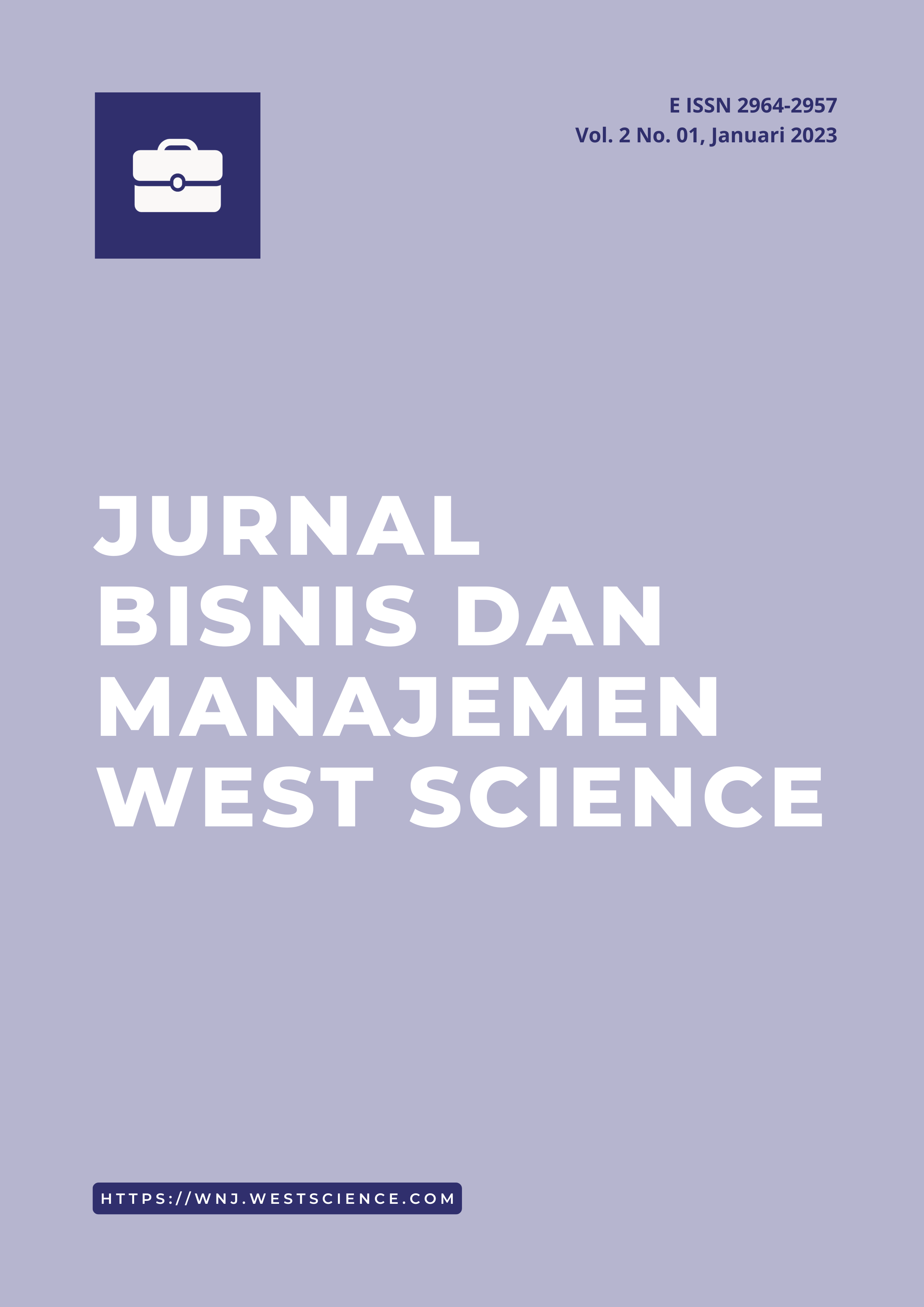Pengaruh Kepribadian Terhadap Kinerja Karyawan
DOI:
https://doi.org/10.58812/jbmws.v2i1.195Kata Kunci:
Personality, Job, EmployeesAbstrak
A person's personality affects their performance, with appropriate placement of talents and potential to increase work productivity. Employees who stand alone are organizational organizations in the framework of competition. Competition in organizations is usually in the form of new ideas, fast service, and accurate decisions. To support this, adequate Human Resources (HR) and satisfying services are needed. To support these services, employees who have a personality and motivation that reflect attitudes are needed. The company in carrying out its activities is supported by human resources, namely employees who excel with a constructive attitude and character, have high responsiveness and are creative. Such as those who run Subekhi and Mohammad (2012: 16), namely in large organizations, large capital, sophisticated technology, natural resources that are impossible to use without adequate human resources, have the ability and competence to utilize environmental resources. Likewise, in the field of work personality, it contributes to work. This is related to personality factors which also determine the suitability of a person's job. There are several types of work according to the type of personality.



















 Instagram
Instagram 